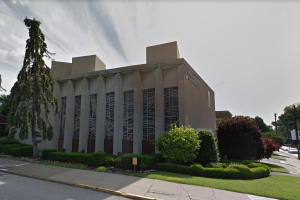Turkish President Recep Tayyip Erdoğan claimed victory Sunday in a constitutional referendum that would expand the powers of the presidency.
A victory for the Yes vote means Turkey’s government will shift from a parliamentary to presidential system, with Erdoğan at the head.
Around 20:30 Sunday night, Erdoğan called the heads of the National Movement Party (Milliyetçi Hareket Partisi) and Great Union Party (Büyük Birlik Partisi) to congratulate them on the referendum victory.
Unofficial returns from the state news agency Anadolu put the Yes vote at 51.3 percent and No at 48.7 percent while the Supreme Election Council (Yüksek Seçim Kurulu) continues to verify the ballots.
As president, Erdoğan would lead the executive branch; have the power to dissolve parliament; introduce (and remove) a vice president; and appoint other high-level officials, including government ministers and about half the judiciary.
Furthermore, the president would no longer be required to be neutral or cut ties with political parties.
The expanded powers would include the authority to enact emergency laws.
On April 13, a group of UN experts warned that the constitutional changes could be used to violate human rights, citing the thousands of people who have been arrested and dismissed from public service jobs since the failed July 2016 coup.
In a controversial move, Turkey’s Supreme Election Council (YSK) announced via a pop-up on its website at around 17:15 Istanbul time (14:15 GMT) that envelopes and ballots without the official stamp would be counted as valid votes unless there is evidence they were brought from outside.
It says "unstamped" envelopes and ballots will be counted as valid unless there's evidence they were brought from elsewhere/outside.
— Ebru Erdem Akcay (@eerdem) April 16, 2017
Earlier, there were a number of reports of unstamped and incorrectly stamped ballots.
Republican People’s Party (Cumhuriyet Halk Partisi) member Ümit Özdağ said the party would object to at least 60 percent of the counted votes due to the last-minute changes. CHP charged there were 1.5 million ballots counted without stamps.
The Peoples’ Democratic Party (Halkların Demokratik Partisi) said it would back the challenge. In a tweet, HDP said its data indicated “a manipulation in the range of 3-4 percent.”
There were also claims that OSCE monitors were prevented from doing their work.
OSCE: Referendum contested on “unlevel playing field”
OSCE international observers said in an April 17 statement that the referendum was contested on an “unlevel playing field”.
The statement said the voting process was well administered, but voters were not provided with impartial information about key aspects of the reforms, and that limitations to fundamental freedoms had a negative effect.
“The referendum did not live up to Council of Europe standards. The legal framework was inadequate for the holding of a genuinely democratic process.”
Cezar Florin Preda, head of the Parliamentary Assembly of the Council of Europe delegation.
Tana de Zulueta, head of the ODIHR limited election observation mission, said fundamental freedoms essential to a genuinely democratic process were curtailed under Turkey’s ongoing state of emergency.
“Our monitoring showed the ‘Yes’ campaign dominated the media coverage and this, along with restrictions on the media, the arrests of journalists and the closure of media outlets, reduced voters’ access to a plurality of views,” de Zulueta said.
The OSCE mission found that provincial governors used state-of-emergency powers to place restrictions on assembly and expression of views.
“A state of emergency should never be used to undermine the rule of law,” Preda said.
The statement says the legal framework for the referendum did not sufficiently provide for impartial coverage, nor did it guarantee eligible political parties equal access to public media. It said preference was given to the ruling AK party and President Erdoğan in the allocation of free airtime, and that the YSK’s authority to sanction for biased coverage was repealed.
According to the OSCE, the YSK decided that civil society organisations were not permitted to hold campaign events.
“We observed the misuse of state resources, as well as the obstruction of ‘No’ campaign events,” de Zulueta said, adding that some senior officials equated ‘No’ supporters with terrorist sympathisers, and that “in numerous cases ‘No’ supporters faced police interventions and violent scuffles at their events.”
The statement said referendum day proceeded in an orderly and efficient manner in the limited number of polling stations visited by international observers. In some cases, access was denied or limited for observers at the opening of and during voting in polling stations. In some cases, police checked voters’ identification documents before granting them access.
The statement also pointed to the YSK decision which changed ballot validity criteria as undermining an important safeguard and contradicting the law. De Zulueta said that the mission has not yet had an opportunity to have a meeting on this matter.




